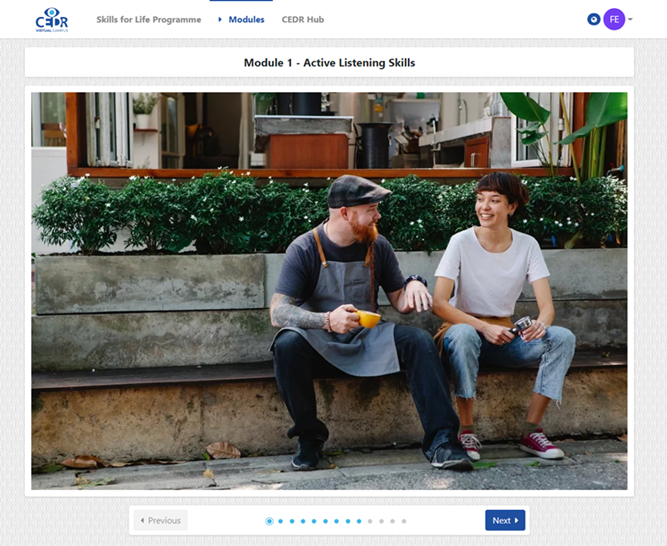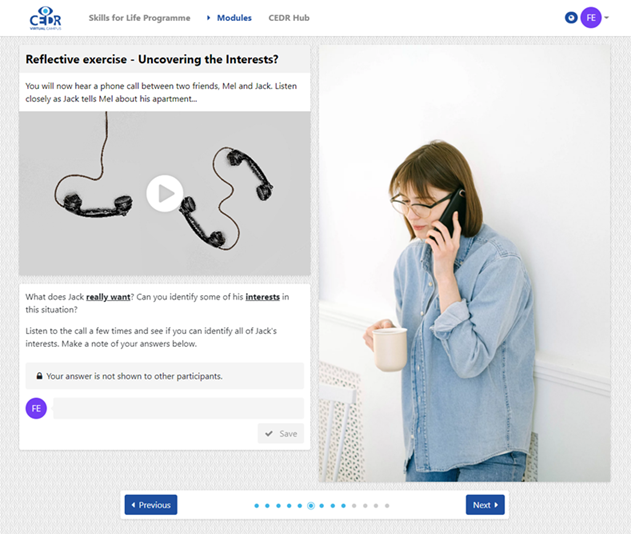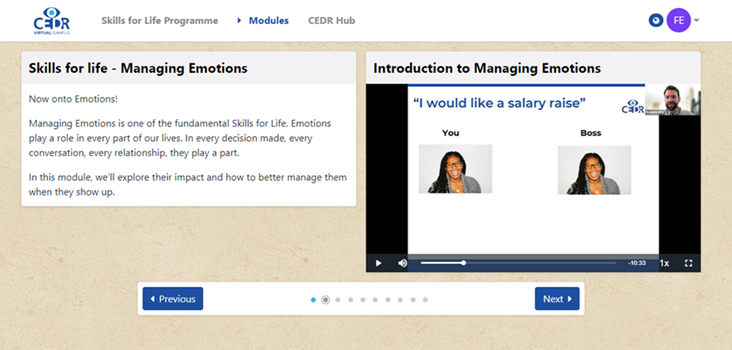About CEDR Skills For Life
At CEDR, we know that it is important that conflict is handled well at every stage of life. This programme deals with training for difficult conversations at work, home and amongst peer groups for those who want to go on to be future leaders.
The Skills for Life programme has been developed out of the CEDR Foundation’s work of delivering in-person difficult conversations training (the New Dialogues Programme) for organisations and individuals since 2017. Now, with the use of an online version of the training, we are able to offer the programme to a much wider group of people.
The course is initially being offered on a free or low cost basis to charitable and non-profit educational organisations who work with people between 16-25 years old. We are now inviting organisations who work in this area to apply for the programme.
We aim to offer the programme to non-charitable organisations and individuals in the future.





